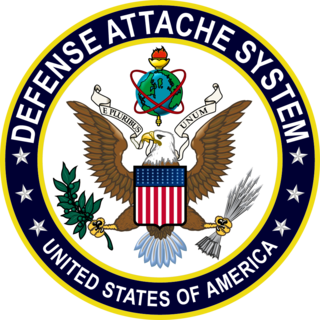 W
WThe Defense Attaché System is an arm of the Defense Intelligence Agency tasked with representing the United States in defense and military related matters with foreign governments around the world. Defense Attache Offices (DAO) operate from U.S. embassies in more than a hundred locations globally. DAOs are composed of both civilian and military employees, most of whom receive specialized training at Joint Military Attache School before their appointment.
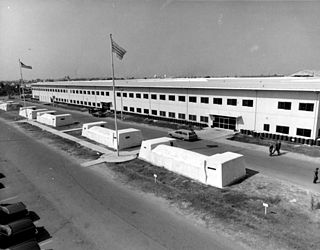 W
WThe Defense Attaché Office, Saigon was a joint-service command and military attaché branch of the United States Department of Defense (DOD) under the control of United States Support Activities Group (USSAG). It assumed all DOD responsibilities in South Vietnam following the disestablishment of Military Assistance Command, Vietnam (MACV) in March 1973. The DAO was responsible for administering military assistance and support to the South Vietnamese armed forces, the gathering and distribution of military intelligence and the performance of normal Defense Attaché functions. The DAO remained in existence until August 1975.
 W
WDavid Dean Barrett was an American soldier, a diplomat, and an old Army China hand. Barrett served more than 35 years in the U.S. Army, almost entirely in China. Barrett was part of the American military experience in China, and played a critical role in the first official contact between the Communist Party of China and the United States government. He commanded the 1944 U.S. Army Observation Group, also known as the Dixie Mission, to Yan'an, China. However, his involvement in the Dixie Mission cost him promotion to general, when Presidential Envoy Patrick Hurley falsely accused Barrett of undermining his mission to unite the Communists and Nationalists.
 W
WJames Lawton Collins was a major general of the U.S. Army who served in World War I and World War II, and was the father of Apollo 11 astronaut Maj. Gen. Michael Collins, USAF Reserve (ret.), and Brigadier General James Lawton Collins Jr. His brother, General J. Lawton Collins, served as Army Chief of Staff during the Korean War.
 W
WArthur Latham Conger Jr. was an officer in the United States Army and an author and editor. A veteran of the Spanish–American War, Philippine–American War, Boxer Rebellion, Pancho Villa Expedition, and World War I, he attained the rank of colonel and devised the World War I deception known as the Belfort Ruse. A noted theosophist, he served as president of Theosophical Society Pasadena.
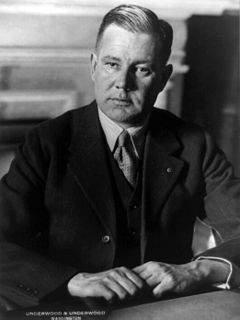 W
WBronson Murray Cutting was a United States Senator from New Mexico. A Republican, he had also been a newspaper publisher and military attaché.
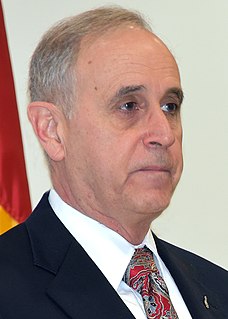 W
WKeith W. Dayton is a retired lieutenant general in the United States Army who currently serves as the director of the George C. Marshall European Center for Security Studies in Garmisch-Partenkirchen, Germany. Dayton served as the U.S. Security Coordinator for Israel-Palestinian Authority in Tel Aviv, Israel from December 2005 to October 2010. He has also served as the Director of the Iraq Survey Group, as a senior member of the Joint Staff, and as U.S. Defense Attaché in the U.S. Embassy in Moscow, Russia. In May 2020, President Trump nominated Dayton to serve as the next U.S. ambassador to Ukraine.
 W
WKarl Winfrid Eikenberry is a retired United States Army lieutenant general who served as the U.S. Ambassador to Afghanistan from April 2009 to July 2011. From 2011 to 2019, he was the Director of the U.S. Asia Security Initiative at the Walter H. Shorenstein Asia-Pacific Research Center and a Stanford University professor of the practice; a member of the Core Faculty at the Center for International Security and Cooperation; and an affiliated faculty member at the Freeman Spogli Institute for International Studies, Center on Democracy, Development and the Rule of Law, and The Europe Center.
 W
WBonner Frank Fellers was a US Army officer who served during World War II as military attaché and director of psychological warfare. He is notable as the military attaché in Egypt whose extensive transmissions of detailed British tactical information were intercepted by Axis agents and passed to German Field Marshal Erwin Rommel for over six months, which contributed to disastrous British defeats at Gazala and Tobruk in June 1942. He was considered a protégé of General Douglas MacArthur.
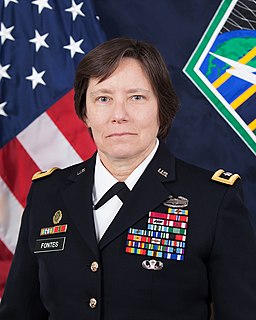 W
WRobin Louise Fontes is a United States Army major general. In July 2017 she took command of Combined Security Transition Command – Afghanistan, becoming the highest-ranking female military officer in Afghanistan since the American invasion of that country in 2001. A mustang officer, Fontes was commissioned in 1986 and focused on Central Asia, eventually serving in Tajikistan, Pakistan, and India, including a few years in Afghanistan. She assumed her current position after the resignation of Michael Flynn from the Trump Administration ended her announced role as senior director for India, Pakistan and Central Asian Affairs on the United States National Security Council.
 W
WGranville Roland Fortescue was an American soldier, a Rough Rider serving with his cousin, Colonel Theodore Roosevelt in Cuba, a presidential aide in the first Roosevelt administration and later, a journalist and war correspondent for the London Standard during the Rif War in 1920 Spanish Morocco. He wrote for the London Daily Telegraph during World War I and during the Spanish Civil War.
 W
WBenjamin Delahauf Foulois was a United States Army general who learned to fly the first military planes purchased from the Wright Brothers. He became the first military aviator as an airship pilot, and achieved numerous other military aviation "firsts". He led strategic development of the Air Force in the United States.
 W
WFrancis Vinton Greene (1850–1921) was a United States Army officer who fought in the Spanish–American War. He came from the Greene family of Rhode Island, noted for its long line of participants in American military history.
 W
WFrank O'Driscoll Hunter was a World War I flying ace, being credited by the United States Army Air Service with downing nine enemy aircraft. Hunter became an advocate of fighter aircraft strategy and tactics. In World War II he served as commanding general of the VIII Fighter Command and, later, the First Air Force.
 W
WJames Anderson Irons was a brigadier general during World War I.
 W
WBernard "Burn" Loeffke is a retired major general of the United States Army. He fought and was wounded in the Vietnam War and later served as the commanding general of U.S. Army South. He was awarded four Silver Stars, five Bronze Stars, and a Purple Heart. In the 1980s, he was the first American general to serve in the U.S. embassy in Beijing, as defense attache. He wrote the book China, Our Enemy?, which espouses peaceful relations between the U.S. and China.
 W
WLieutenant General Arthur MacArthur Jr. was a United States Army general. He became the military Governor-General of the American-occupied Philippines in 1900 but his term ended a year later due to clashes with the civilian governor, future-U.S. President William Howard Taft.
 W
WLieutenant General John Wilson O'Daniel, nicknamed "Iron Mike", was a senior United States Army officer who served in World War I, World War II, and the Korean War. He is perhaps best known for serving with the 3rd Infantry Division in North Africa, Sicily, Italy, and Southern France during World War II. He was the commanding general (CG) of Audie Murphy, the most decorated soldier in the U.S. Army during World War II.
 W
WGeneral of the Armies John Joseph "Black Jack" Pershing was a senior United States Army officer. He served most famously as the commander of the American Expeditionary Forces (AEF) on the Western Front in World War I, 1917–18. In addition to leading the A.E.F. to victory in World War I, Pershing notably served as a mentor to many in the generation of generals who led the United States Army during World War II, including George Marshall, Dwight D. Eisenhower, Omar Bradley, Lesley J. McNair, George S. Patton and Douglas MacArthur.
 W
WFoster Waterman Stearns was a U.S. Representative from New Hampshire.
 W
WJoseph Warren Stilwell was a United States Army general who served in the China Burma India Theater during World War II. An early American popular hero of WW2 for leading a column walking out of Burma pursued by victorious Japanese forces, his implacable demands for units debilitated by disease to be sent into heavy combat resulted in Merrill's Marauders becoming disenchanted with him. Infuriated by the 1944 fall of Changsha to a Japanese offensive, Stilwell threatened Chiang Kai-shek that Lend-Lease aid to China would be cut off. This led Ambassador Patrick J. Hurley to decide Stilwell had to be replaced. Nationalist leader Chiang Kai-shek had been intent on keeping Lend-Lease supplies for fighting Communists, while Stilwell had been obeying instructions to get the Chinese Communists and Nationalists to cooperate against Japan. Influential voices such as journalist Brooks Atkinson viewed the Chinese Communists as benign and Stilwell as a victim of a corrupt regime. The ousting of Stilwell sparked the beginning of anti-Chiang Kai-shek feeling among US policymakers that culminated in the 1947 ceasing of American assistance to Nationalist Chinese forces in the Chinese Civil War. Admirers of Stilwell saw him as having been given resources and authority that were so insufficient, his task was virtually impossible. Critics viewed him as a hard-charging, but ultimately unprofessional officer whose failings contributed to the Loss of China.
 W
WVernon A. Walters was a United States Army officer and a diplomat. Most notably, he served from 1972 to 1976 as Deputy Director of Central Intelligence, from 1985 to 1989 as the United States Ambassador to the United Nations and from 1989 to 1991 as Ambassador to the Federal Republic of Germany during the decisive phase of German Reunification. Walters rose to the rank of lieutenant general in the U.S. Army and is a member of the Military Intelligence Hall of Fame.
 W
WCharles Andrew Willoughby was a major general in the U.S. Army, serving as General Douglas MacArthur's chief of intelligence during most of World War II and the Korean War.
 W
WLarry M. Wortzel is an eight-term Commissioner of the U.S.-China Economic and Security Review Commission of the United States Congress. A 32-year military veteran, he was a U.S. Army colonel, director of the Strategic Studies Institute of the United States Army War College, and vice president of The Heritage Foundation. He was a military attaché at the U.S. Embassy in Beijing, and witnessed the Tiananmen Massacre in 1989. He is considered one of the United States' top experts on China and its military strategy.
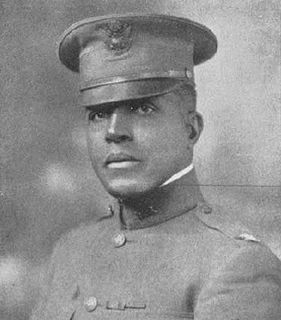 W
WCharles Young was an American soldier. He was the third African-American graduate of the United States Military Academy, the first black U.S. national park superintendent, first black military attaché, first black man to achieve the rank of colonel in the United States Army, and highest-ranking black officer in the regular army until his death in 1922.